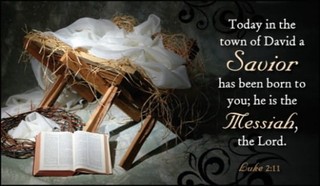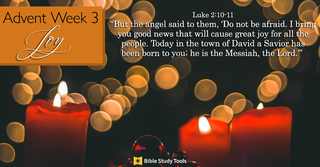
- Recent Translations
- All Translations
Luke 2:26 in Other Translations
Luke 2:26 Meaning and Commentary
And it was revealed unto him by the Holy Ghost
Not in a dream, as the wise men were warned, nor by an angel, as Joseph, nor by a voice from heaven, which the Jews call "Bath Kol", but by the inspiration of the Holy Ghost, enlightening his understanding, and impressing on his mind:
that he should not see death;
an Hebraism, see it in ( Psalms 89:48 ) the same with the phrase, "to taste death", elsewhere used; and the sense is, as the Ethiopic version renders it, "that he should not die"; or as the Persic version, "that his death should not be"; as yet: he should live some time longer; nor should that messenger be sent to remove him, though a man in years, out of time into eternity,
before he had seen the Lord's Christ:
with his bodily eyes: for he had seen him with an eye of faith already, and in the promise, as Abraham had; and in the types and sacrifices of the law, as the rest of believers under the Old Testament. The Messiah is called the Lord's Christ, referring to ( Psalms 2:2 ) because he was anointed by Jehovah, the Father, and with Jehovah, the Spirit; with the Holy Ghost, the oil of gladness, to be prophet, priest, and king, in the Lord's house. So the Messiah is by the Targumist called, the Messiah of Jehovah, or Jehovah's Messiah; that is as here, the Lord's Christ: thus in the Targum on ( Isaiah 4:2 ) it is said.
``in that time, (yyd axyvm) , "Jehovah's Messiah", shall be for joy and for glory.''And on ( Isaiah 28:5 ) the paraphrase is,
``at that time, (yyd axyvm) , "the Messiah of the Lord" of hosts shall be for a crown of joy, and for a diadem of praise to the rest of his people.''Compare these paraphrases with what is said of Christ, in ( Luke 2:32 ) . "The glory of thy people Israel"; Simeon's language exactly agrees with the Targumist. The Persic version adds, "and with this hope he passed his time, or age, and became very old and decrepit."

